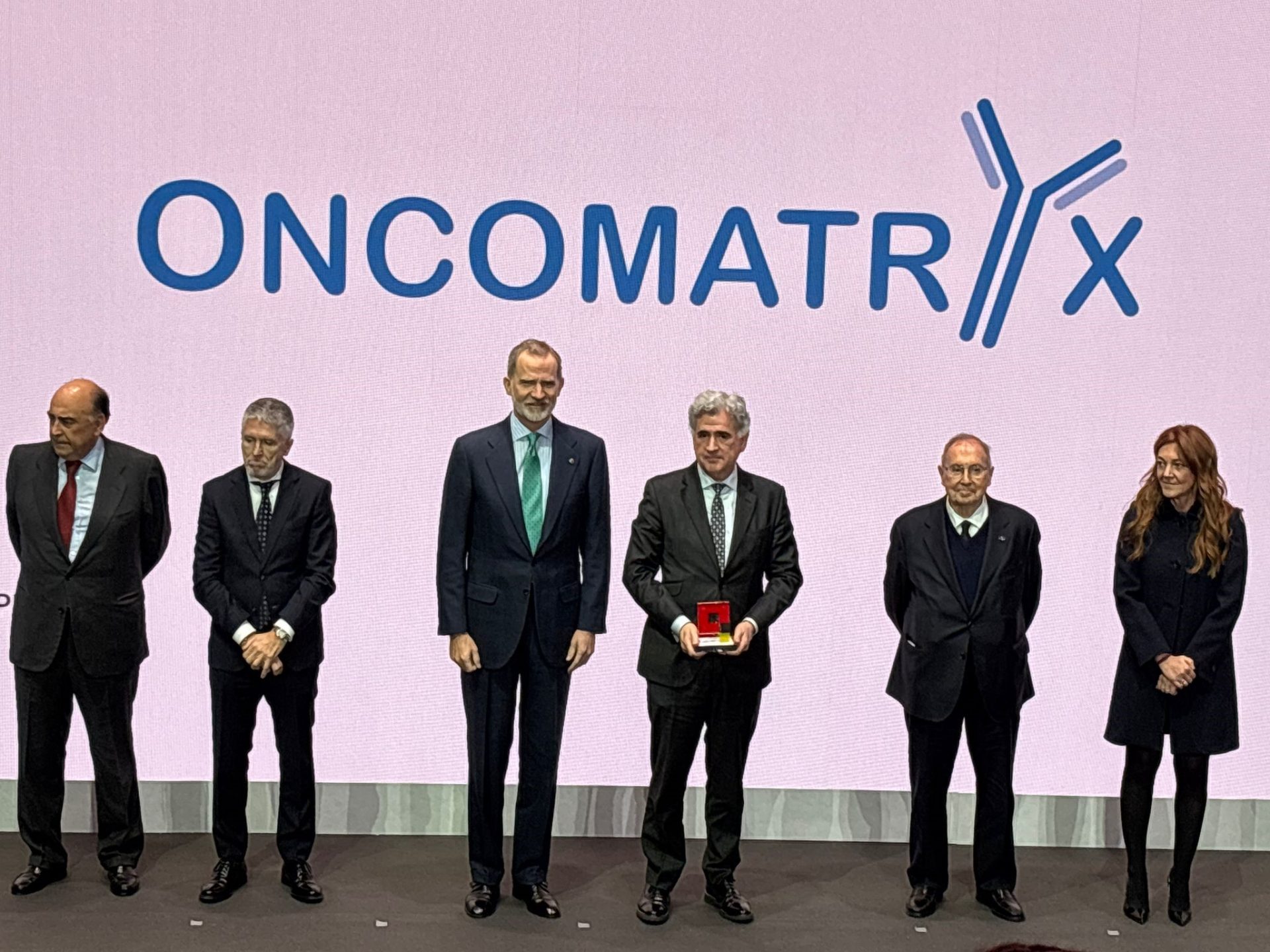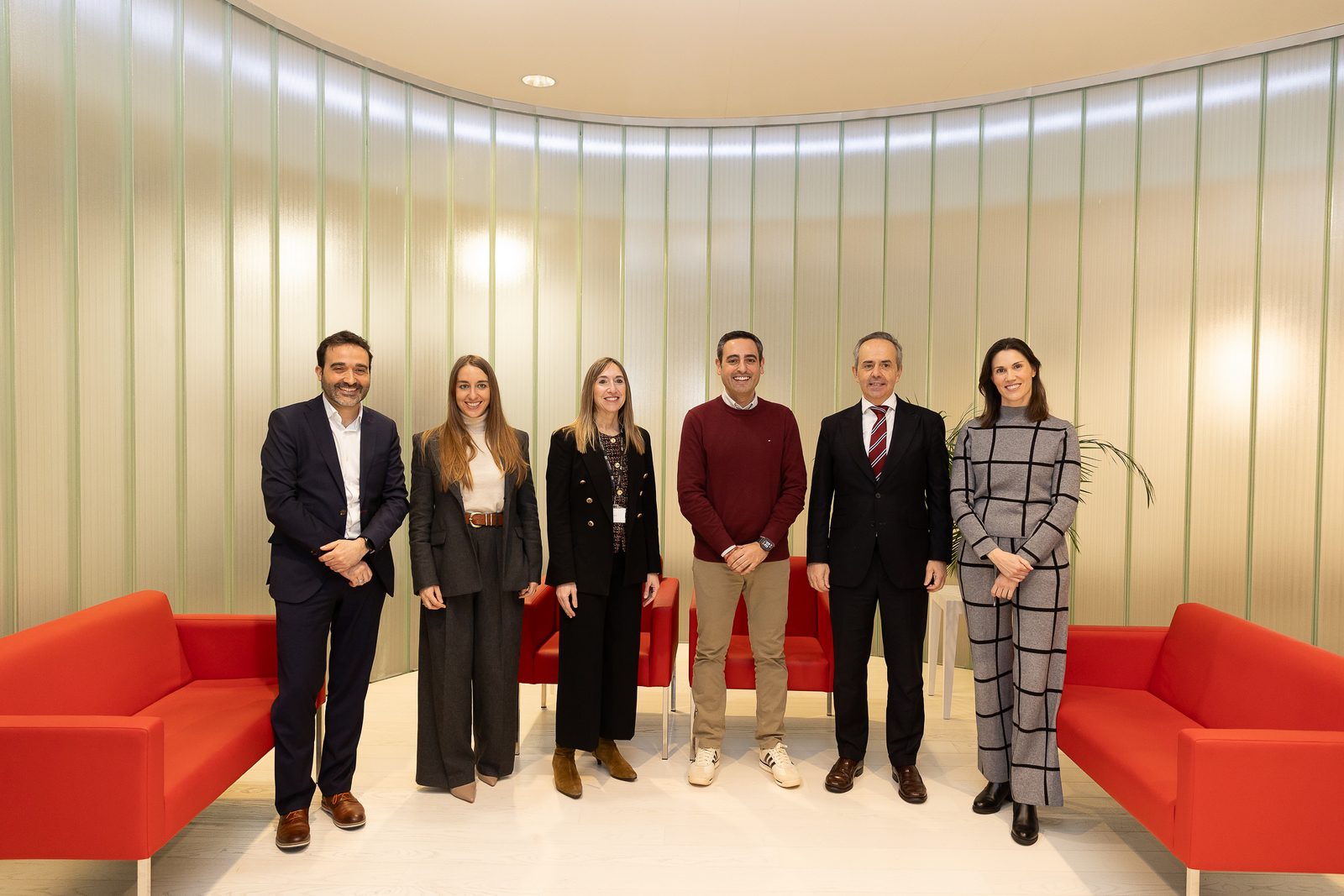The Aeronautics and Space Cluster of the Basque Country increases employment by 14% and turnover by 20% by 2024

The figures generated by the 77 members of the Aeronautics Cluster HEGAN continue to break records
Ricardo CHOCARRO CEO of Aernnova and current President of HEGAN, together with Ana VILLATE, Director of the Aeronautics and Space Cluster Association have presented the figures for the Aerospace Sector in the Basque Country for the year 2024.
The figures generated last year by the 77 Cluster Members have continued to break records in employment, exports and turnover thanks to the efforts of all the associated entities, persevering in their daily work, investing in their competitiveness and strengthening their positioning in the global market.
A steady route through uncertain times
The past 2024 has been a year in which the sector associated with HEGAN has significantly increased its overall figures with respect to 2023, by 14% in employment and 20% in turnover. These figures confirm the growth forecasts that were advanced in recent months. Despite the tensions in the supply of raw materials and supply chains, the significant escalation in production costs and the unstable geopolitical environment, the aerospace industry continues to demonstrate its strength and capacity to adapt, with great efforts to maintain and hire more staff, with investments in capacities and by the sector’s continued technological commitment to investment in R&D&I.
Innovation, linked to knowledge and technological development, has become the driving force and differentiating element that has enabled competitiveness to be maintained, as R&D&I programmes and activities not only develop new technologies and products, but also improve industrial processes, making them increasingly competitive and cleaner, and giving the sector its strategic character. In the last year, the R&D&I investments of the Partners corresponded to 6.2% of sales; thus, the sector continues to be one of the most intensive in R&D&I, with almost 2,500 people working in this area.
The figures of the Cluster in 2024
The Aeronautics and Space Cluster Association of the Basque Country – HEGAN is made up of 77 members, positioned practically throughout the entire Aerospace value chain. Members include 4 Tier1, 50 Industrial Companies, 10 Technology Centres, 5 Universities and 8 Allies. Currently, HEGAN members have a total of 173 facilities around the world, with 101 centres in the Basque Country, 41 in the rest of Spain and 31 locations abroad (Germany, Brazil, China, United States, India, Malta, Morocco, Mexico, Poland, Portugal, United Kingdom and Switzerland).
In 2024, the Associates generated an aggregate turnover of €3,459 million at all of their sites around the world. By sub-sector, Engines accounted for 53% of this turnover; Aerostructures accounted for 39%; Systems and Equipment, 4.1%; and Space, 3.9%.
Exports amounted to 2,804 million euros, representing more than 80% of total sales. By country of destination, exports during this period were to the United Kingdom (27%), Germany (22%), the USA (19%) and France (10%).
In terms of employment, this reached a record high of 17,513 people in all its companies around the world, almost 6,000 of them in the Basque Country. With 19.6% of employment being female.
Another noteworthy fact is that investment in R&D&I exceeded 215 million euros (87% of which corresponds to self-financing).
Sector forecasts
In the vision of the HEGAN Cluster, ‘yet another year, the aerospace sector has shown that it is going through an excellent moment despite the great uncertainties that are still present in world geopolitics; there are various aspects such as the costs of raw materials, production costs and issues such as problems arising from tariff issues on which we can have little or no influence, which can reduce our competitiveness and good work’, commented the director of the Cluster-Association.
The aviation industry is expecting growth of more than 6% year-on-year as the size of the world commercial fleet is expected to double over the next 20 years from around 24,000 aircraft today to around 48,000 by 2043, by which time some 42,000 new aircraft will be needed, according to Airbus and Boeing estimates.
42,000 new aircraft will be needed by 2043, according to Airbus and Boeing estimates.
In the Space sector, overall activity is set to continue to increase. In this sense, the incorporation of new figures with a clear commercial orientation, the increase in private investments, the demand for new services and operations related to earth observation and communications, and the commitment of the Administrations to develop new and powerful missions, have allowed for growth in recent years. This increase in activity not only sustains the sector, but also has an impact on society, making the world more connected, safer and more sustainable. ESA estimates that 100,000 satellites will be orbiting by 2030, an eight-fold increase over the 12,600 satellites currently tracked on the orbiting-now website.
And finally, the expected growth in different niches such as Security, New Urban Mobility, Dual Technologies, Sustainable Aviation…
Value of the Aeronautics and Space Sector
With all this, results, forecasts, impact…, it can be assured that the aerospace sector is strategic and key to the wealth of a country because:
- it is a creator and generator of highly qualified direct employment, as well as having indirect and induced job creation rates that, in the most prudent of studies, are three times higher than direct employment.
- is technology-intensive, being a vector of scientific and technical transfer to other sectors and industries.
- It is a developer of products and services with high added value.
The sector is no stranger to a cleaner world.
- for more than three decades, it has imposed enormous environmental demands on itself, making today’s aircraft more efficient than a few decades ago, emitting less noise and less CO2 and NOx per passenger than the models of the last century.
- is part of the solution (decarbonisation, electrification, zero emissions…) as a developer and demonstrator of clean technologies, thus aligned with the Sustainable Development Goals (SDGs) and working on efficient, clean, neutral, sustainable aircraft and platforms…
- develops not only more competitive but also more sustainable technologies and manufacturing processes with a focus on emission neutrality in industrial activity.
Due to the Sector’s inherent objective of manufacturing more efficient and competitive aircraft, the need (connatural to human beings) to meet, get to know each other, travel, learn, trade, interact, escape, work and undertake, is made possible, contributes and democratises; fostering a more connected, supportive, cohesive, egalitarian, safe and fair world.
We foresee, in the medium term, a weak global economy in an unstable world environment, but with very positive growth prospects that open a great field of opportunities that will confront us with great challenges in the fields of digitalisation (AI, cybersecurity, robotisation…), efficiency, sustainability, financing, talent; and we will be able to take advantage of them with the support of all: Cluster, Partners and Administrations.




